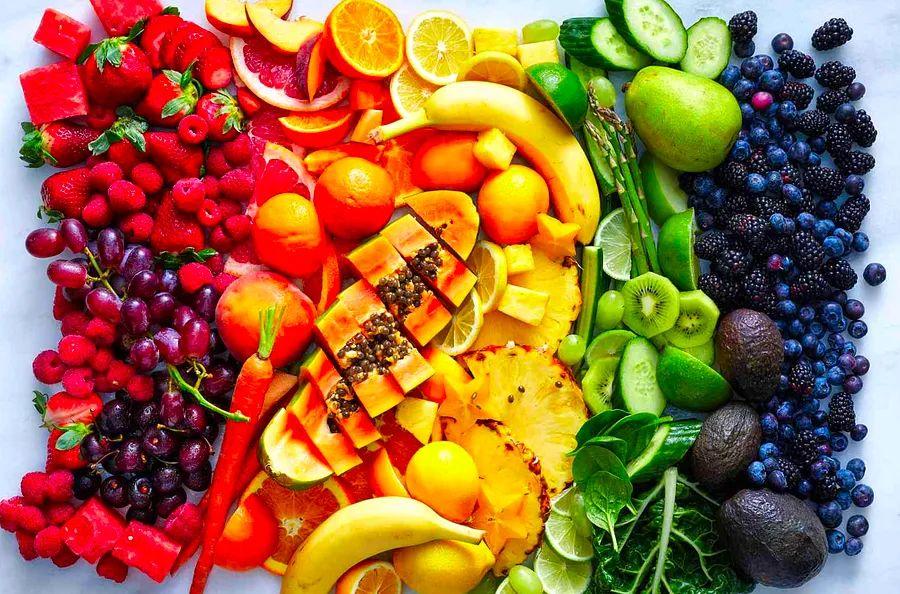The Best and Worst Fruits for Diabetics

Many believe that people with diabetes must avoid fruit altogether. While fruit does contain natural sugars, having diabetes doesn’t mean you have to cut it out. It just means making smarter choices about which fruits and how much to consume.
Like many foods, fruit can cause blood sugar spikes. Frequent spikes in blood sugar can lead to higher A1C levels, which reflect how well your body is managing glucose over time. The higher the A1C, the more difficult it becomes to keep diabetes in check.

Fruit doesn’t have to be off-limits for people with diabetes. In fact, fruit can be a nutritious addition to a balanced diet. The key is choosing the right fruits and enjoying others in moderation.
We consulted two expert dietitians to discover which fruits are best and worst for managing diabetes.
Can People with Diabetes Enjoy Fruit?
"All fruits offer nutritional benefits, even for those with diabetes," says Zoe Fienman, RD LDN CDE, a registered dietitian at OnPoint Nutrition. "They are packed with fiber, essential vitamins, and minerals your body requires."
What makes some fruits better or worse for people with diabetes largely depends on their sugar content and their position on the glycemic index. The glycemic index is a useful tool that measures how quickly food is digested and absorbed into the bloodstream.
"A higher glycemic index means that the food is broken down more quickly, which can cause a faster rise in blood sugar," explains Fienman. However, it’s important to remember that each person’s body may react differently to foods. For example, one person with diabetes might tolerate a banana without much effect, while another might need to avoid it altogether.
As always, it’s essential to consult with your doctor or a registered dietitian when creating a diet plan that helps manage diabetes and maintain healthy blood sugar levels.
The Worst Fruits for Diabetics
Portion control is crucial for all fruits, particularly those with a high glycemic index. Fienman suggests considering the size of a whole fruit (like an apple) as roughly equivalent to a tennis ball and cutting up fruit into a ½ cup serving. Even in these smaller amounts, some fruits can still contain more natural sugars that may cause prolonged blood sugar spikes.
These fruits are high in natural sugars:
- mango
- banana
- papaya
- pineapple
- watermelon
Avoid canned fruit.
Canned fruits and pre-packaged fruit cups might be quick and affordable, but they’re not the healthiest option.
"Fruits canned in heavy or light syrup are not ideal for people with diabetes," explains Kim Rose, RD, a certified diabetes care and education specialist. "The syrup adds extra sugar that can overwhelm the body’s ability to process it effectively."
Be cautious with dried fruits.
Drying fruit condenses the flavors into smaller bites, but it also increases the concentration of sugars. Even a small portion of dried fruit can push sugar levels higher than expected.
Be sure to check the labels on dried fruit; many brands add extra sugars. Some even have added sweeteners, which can make the sugar content worse. If you do choose dried fruit, keep your servings small. Rose suggests dates, figs, and prunes, as they are lower on the glycemic index.
Juices and smoothies can be tricky.
Many commercial juices — including orange, apple, and even green juices — often contain added sugars, so it’s best to avoid them. Even homemade juices or smoothies can require a lot of fruit to make one serving (a small juice can take two to three oranges), which may not be ideal for managing diabetes. If you prefer smoothies, try focusing on mostly vegetables and just a small portion of fruit, like half a banana, for sweetness.
The Best Fruits for Diabetics
The recommendation for fruit intake is typically two to three servings a day, which holds true for those with diabetes as well.
"Pairing fruit with a healthy fat or protein can help keep you feeling satisfied and support portion control," says Fienman.
Here are some great fruits that are not only lower on the glycemic index but also rich in essential vitamins and minerals:
- berries — Both citrus and berries are recommended as superfoods by the American Diabetes Association.
- cherries
- plums
- grapefruit
- peaches
- apples — High fiber fruits like apples and pears help to slow a spike in blood sugar, Rose says.
- pears
- kiwi
- oranges

1

2

3

4

5
Evaluation :
5/5